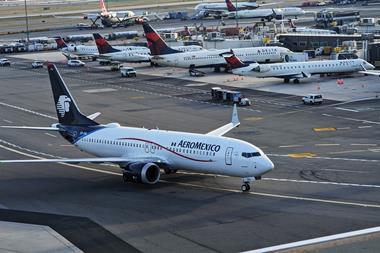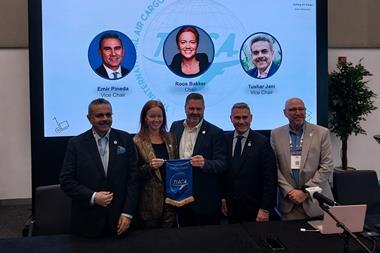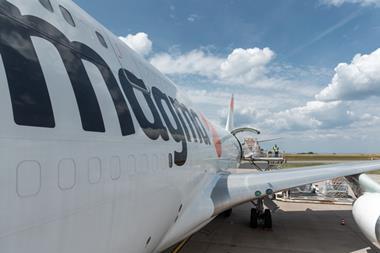THE International Air Cargo Association (TIACA) has launched an air freight-specific educational workshop aimed at attracting and cultivating the next generation of industry leaders.
The first three-day course will take place near Amsterdam’s Schiphol Airport between June 25-27.
Around 25 students are expected to attend from a wide cross section of the air cargo industry, reflecting TIACA’s own membership base, which includes airlines, forwarders, airports, ground handlers and shippers.
The program is tailored to develop management and decision-making skills, including financial analysis and marketing, along with team-building leadership expertise.
TIACA secretary general Doug Brittin said: “The new program addresses the specific needs of the air freight industry and will give students the practical information and skills they need to succeed on a day-to-day basis.
“The workshops will also provide the perfect backdrop for raising questions and thoughts, creating the process of change required for industry development and growth.
“Students will build connections and support through networking.”
The program, with each three-day session costing $2,000 plus travel and accommodation, is the result of a collaboration between TIACA and Strategic Aviation Solutions International. It aims to fill the management knowledge-gap identified in the conclusions of a two-year study released by a TIACA-led Education and Training Task Force in January 2014.
The report concluded that focused courses were needed to teach vital “soft skills” in order to avoid a leadership crisis in the industry.
TIACA’s education and research committee headed the study, in conjunction with the International Air Transport Association, the International Federation of Freight Forwarders Associations and the International Civil Aviation Organization.
Jim Edgar, chairman of TIACA’s education and research committee, said: “Worldwide air cargo traffic is expected to continue growing and our industry is going to need a new and increasing source of suitably-qualified managers to support this.”
The focus will be on soft or higher skills to fill a gap between technical training already offered by the air cargo industry and a degree program in logistics, aimed at the first level supervisor or those who have not had specific training in logistics.
It will help students in financial planning, forecasting and marketing through case studies, seen as “an essential point of the instruction method”.
In a press conference, Edgar added: “We are envisaging that this will be the first of several workshops, depending on demand, all over the world. Ultimately, our goal would be to offer a certificate program that offers to the industry a basic knowledge and understanding of the specifics of the air cargo supply chain.”
Charles Edwards of the North Carolina Center for Global Logistics, who has been involved in drawing up the program’s curriculum, said: “We have drafted a number of different case studies and the idea is to reflect what is happening in the world right now. Whether it is a belly versus freighter discussion, or how to develop a hub, from a number of different perspectives.
“Our survey identified a need for market analysis, financial analysis and competitive analysis. The idea is to craft a series of cases that the student will follow, but from a number of different perspectives.
“We will teach them how to do a competitive analysis based on a set of data, and other financial analyses.”
Students will be put into teams so that on the last day of the course they can make a presentation to the instructors and other industry players.
Added Edwards: “It is not a pass or fail, but more a proof that they have begun to understand the skill sets that we have given them.
“But also for them to understand that you may make a market choice, based on some competitive analysis, but financially that may not be the right way to approach the solution. We want them to see the inter-relationship of this process.”
Stan Wraight of SASI said: “Another important aspect is the knowledge transfer part. This is a cyclical business and we lost a lot of good people through those cycles. A number of people have joined the industry, but they don’t have the benefit of that knowledge transfer.
“The participants in the courses will have the ability to take something home that is relevant for them in a Q&A or in a sidebar meeting. We will be there to help them.”










